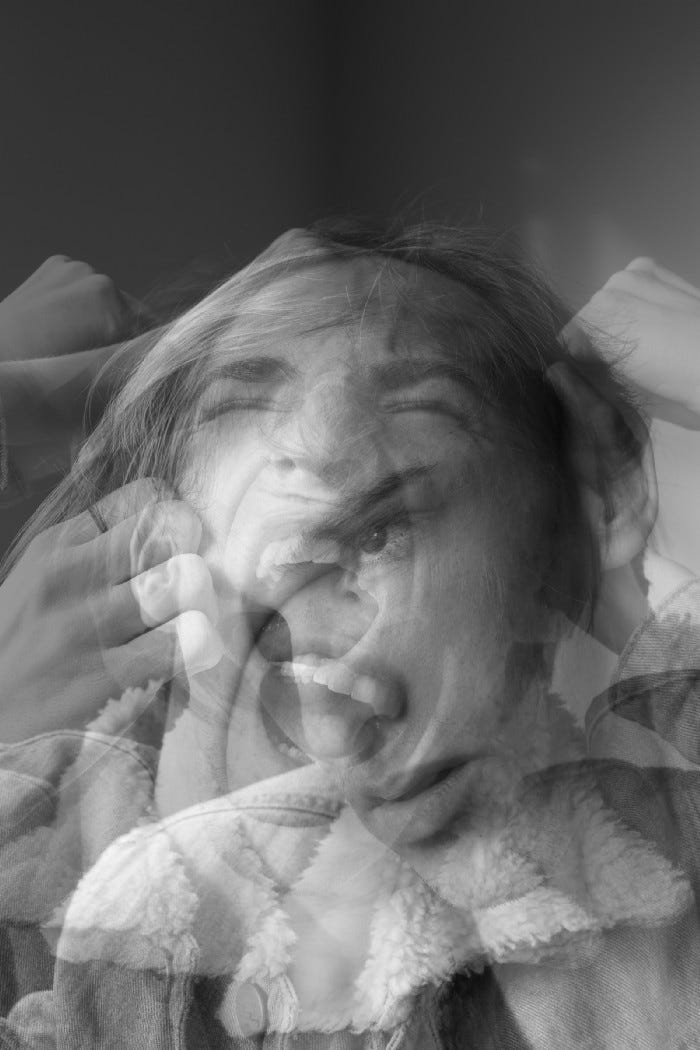Analyzing Post-Traumatic Stress Disorder

Understanding PTSD
“Just because someone carries it well does not mean it’s not heavy”

Post-Traumatic stress disorder is nothing but a mental health condition that is triggered by something terrifying that has happened in our lives and has left a major stamp on our minds. There are a lot of symptoms associated with PTSD. Starting from severe anxiety, nightmares, flashbacks, social distancing, and uncontrollable thoughts, to experiencing sudden shivers down the spine and sometimes just being scared every single step of the way.
Sadly, there is still a huge stigma associated with mental health and the people who deal with PTSD. People need to understand the toll that PTSD takes on a person‘s life. It is not a mind game, it is not a stunt, it changes a person’s life in ways we can’t begin to comprehend. It changes the direction of one’s life. It’s real and it’s scary and the stigma needs to go.
PTSD shows up in different forms and it generally varies from person to person. It doesn’t follow the same set of rules and hierarchy. People often think that for someone to have PTSD there has to be something very dramatic that must have happened to them. Nothing else is farther away from the truth. We need to understand that trauma means different things to different people. Every person has a different threshold of what they can bear. Anything beyond that threshold is going to be traumatic for them. I feel this is why empathy is very important in today’s world. We don’t look at other people and tell them, “You know what, I got you. I got your back if you need me. I understand. I can feel your pain.” Instead, we gossip about them, we feel that they are just being “whiny”, just trying to seek attention. And often wonder “why isn’t he over it yet” and “why doesn’t she just move on”.
Do you know what we can do instead? GIVE THE OTHER PERSON THE BENEFIT OF DOUBT! Give them some space. If we don’t understand it, rather than making it worse we can just shut up and be quiet about it. Won’t we want some love or some space if we were not okay?

The thing about trauma is that it affects us all. Most of us have or will go through something traumatic at some point in our lives. Usually, it does not have a lingering effect but when it does, it changes us, sometimes for the good but sometimes for the bad. Often, trauma does not have a long-term effect but when it does, we should be able to recognize it and we should be able to seek help.
Two rules of PTSD to live by —
- Recognize that you are suffering from some sort of lingering effects from the trauma. (Remember that nothing is too small or too big, nothing is embarrassing. Pain is a pain)
- Seek help, seek help, seek help, seek help
PTSD affects millions of people all around the world. It is responsible for severe nightmares, depression, and negative thoughts, and most of all it tends to interfere with our everyday normal life. We need to stop looking at PTSD as a personal feeling or problem, instead, acknowledge the fact that it is a treatable human malfunction of certain biological mechanisms that helps us to cope with dangerous experiences. After all, to be human is to be a survivor.
Understanding how our brain processes a huge deal of ordeals including failure, pain, injury, death of a loved one, accidents, rapes, torture, etc. will help us understand the cause behind PTSD. When such an event occurs in a person’s life it triggers an alarm system inside of their brain. It is known as the “fight-flight-freeze” response.
When this alarm is triggered, the hypothalamic, pituitary and adrenal systems known as the HPA axis work together to send signals to the autonomic nervous system. This is the network that communicates with Adrenal glands and internal organs to help regulate functions like heart rate, digestion, and respiration. A chemical cascade is activated with the help of these signals. It fills the body with several different stress hormones causing physiological changes that prepare the body to defend itself.
Have you ever noticed how in situations like these our heart rate tends to increase, our breath quickens and our muscles get tensed? Even after the crisis is over, we continue to have those jittery feelings and nightmares for a long time. That is because even after the crisis is over the escalated levels of stress hormones may last for days.

For most people, their hormone level stabilizes and the experience disappears within a couple of weeks, maybe days. But there is a small percentage of people who have persistent problems because of the trauma that they have suffered. It often happens that the feelings and anxiety vanish temporarily and people think that they’re alright only for the feelings to come back and resurface months later.
Now, there isn’t an exact reason as to why this happens in the brain but this one theory states that the stress hormone cortisol, tends to activate the “fight-flight-freeze” response in the brain regularly which leads to several negative signs and symptoms.
The symptoms can fall into four categories —
- Intrusive thoughts — Intrusive thoughts include uneasy dreams and flashbacks
- Avoiding reminders of the trauma — People dealing with PTSD often avoid anything that reminds them of the trauma. For example, someone who had a terrible heartbreak and was traumatized by it might often subconsciously sabotage every relationship that he gets into or simply just avoid getting attached to people
- Negative thoughts — One of the symptoms includes having negative thoughts and feelings like fear, anger, and guilt.
- Reactive symptoms — Reactive symptoms such as irritability and difficulty sleeping
Not everyone has all the symptoms or experiences the issues to the same extent and intensity. When the problems last for more than a month PTSD is often diagnosed. Things like genetics, ongoing overwhelming stress, and other risk factors like pre-existing mental illnesses or lack of emotional support are likely to play a role in determining who will experience PTSD. But the underlying cause is still a medical mystery.
A major challenge of coping with PTSD is sensitivity to triggers. It is difficult to identify the physical and emotional stimuli that the brain associates with the original trauma. These can be everyday sensations that are not inherently dangerous but they tend to prompt powerful physical and emotional triggers. It can be something as small as the smell of a campfire which could evoke the memory of being trapped in a burning house. For someone with PTSD, such memory tends to activate the same chemical cascade as the original event did. This then wakes the feeling of panic and helplessness.

Being a survivor, our natural instinct is to try to avoid these triggers which, instead of helping us cope with the trauma, sends us into a state of isolation. Eventually, because we get so used to isolating ourselves and overthinking every step of the way, we start to feel invalidated, ignored, or misunderstood. We can often feel as if someone has pushed a pause button on our lives while the whole world around us continues to thrive. It feels as if we are suffering in pain while the world rejoices.
Once we identify that we are suffering from PTSD, the first step would be to evaluate our mental health. Followed by seeking a professional who can direct us toward the “many resources” which are available. Psychotherapy has been proven to be a very effective remedy for PTSD. It helps the patients understand themselves better, and understand what triggers them and what doesn’t. There are also medications available that can make the symptoms more manageable. Self-care practices like mindfulness and regular exercise also help.
If you notice signs of PTSD in a friend or a family member, try talking to them about it. Create social support and acceptance groups. Know that empathy is the key to helping someone recover.
PTSD is called the “hidden wind” because it comes without any physical signs. But, even if it is an invisible disorder, it doesn’t have to be a silent one. Mental health conditions impact millions of people around the globe and yet are often misunderstood. Let’s change that.